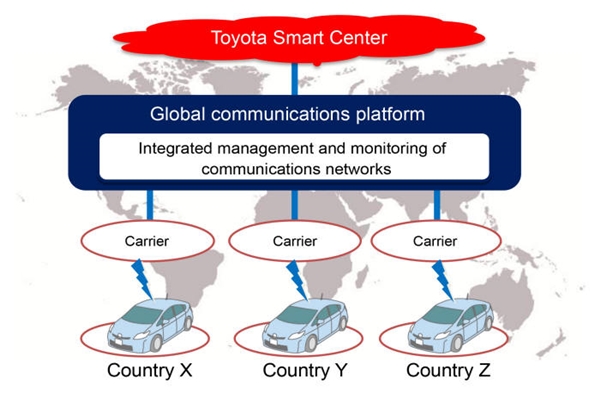A generation where people can freely use wireless internet through data network in a vehicle is nearing soon.
Not only people will be able to check traffic report in real time, they will also be able to send and receive e-mails and use SNS. It is also expected that there won’t be any financial cost for roaming service.
According to an industry on the 16th, automotive manufacturers are making announcements one after the other that they will equip their vehicles with telecommunication modules or platforms within few years.
Currently automotive industries provide basic services that allow people to check traffic reports in real time through telecommunication network and to be connected to 911 when there are emergencies. Hyundai Motor Company is also providing a vehicle-management service through a monthly paid service called Blue Link.
Automotive manufacturers are even thinking about installing SIM Cards or modules that will enable people use internet more freely. Tesla is currently working with AT&T on enabling people to use wireless internet through mobile telecommunication network by using infotainment devices within vehicles and is working on upgrading major functions through OTA (Over-the-Air). Also automotive manufacturers are planning to reduce cost for roaming through modules that can be used anywhere in the world. Although this is not necessary for South Korean customers since they rarely take their cars overseas, these modules will be useful for European and American customers.
Audi announced ‘The Audi Connect SIM’, which is a SIM Card for vehicles, and has decided to install it into new A3, A4, Q2, and Q7. Audi Connect SIM provides unlimited data for navigations and searching of parking spaces and one can go on e-mails and use internet services if he or she pays extra fee. Passengers can use it as Wi-Fi Hotspot, and there aren’t any fees for roaming service since there isn’t any limitation in borders.

Toyota made an announcement that it will be establishing a global telecommunication platform with a Japanese mobile telecommunication business called KDDI.
Toyota will make DCM (Data Communication Module), which is different between countries, the same throughout the world by 2019 for Connected Cars. It is going to install global DCM in almost all vehicles that are sold in Japan and the U.S. by 2020 and do same thing for other major markets sequentially.
KDDI decreases financial burden for customers by connecting them to a telecommunication business depending on their locations after monitoring condition of telecommunication. KDDI is going to increase level of convenience for customers by guaranteeing free use of internet while Toyota will discover new customer services through data that it will be collecting.
“Establishing a telecommunication platform with KDDI is to expand bases that can provide stable connected services with high quality to customers in entire world.” said Executive Director Tomoyama Shigeki of Toyota who oversees Connected Company.
Internet vehicles will be released from China. SAIC (Shanghai Automotive Industry Corporation) introduced a Connected SUV called ‘Roewe’, which was developed by SAIC along with Alibaba, at Beijing Motor Show in April. This is SAIC’s first Connected Car and is expected to be released in September. These two companies made strategic alliance in July of 2014 regarding development of internet vehicles and made funds for internet vehicles by investing $152 million (1 billion Yuan).
Movements for connected services are also taking place in South Korea. SK Telecom has put out a connected service by working with Kia, Jaguar, and Renault Samsung. Kia and Jaguar introduced T-Map before while Renault Samsung introduced attachable tablet PCs. Tesla is also planning to provide a telecommunication service through KT.
Staff Reporter Mun, Bokyeong | okmun@etnews.com